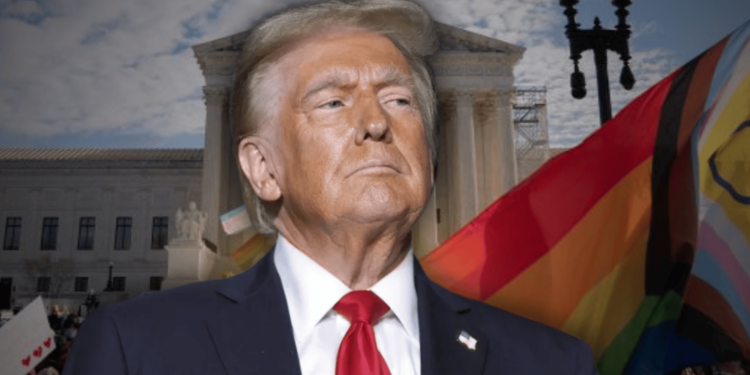The U.S. Supreme Court has ruled in favor of the Trump administration’s controversial policy requiring passports to list a person’s biological sex at birth. The conservative-majority court on Thursday issued an unsigned order allowing the government to proceed with the policy, which had been temporarily blocked by a lower court in Massachusetts. The court emphasized that displaying passport holders’ sex at birth “no more offends equal protection principles than displaying their country of birth.”
This decision marks a significant win for the Trump administration, which signed an executive order on his first day in office recognizing only two sexes—male and female—on passports, based on a person’s biological sex recorded at birth. The Biden administration had previously allowed individuals to self-select their gender on passports and added a third option, X, for those who do not identify strictly as male or female.
The three liberal justices dissented, with Justice Ketanji Brown Jackson criticizing the decision, accusing the conservative majority of “senseless sidestepping of the obvious equitable outcome.” She stated, “This Court has once again paved the way for the immediate infliction of injury without adequate (or, really, any) justification.”
Transgender activist Ash Lazarus Orr and other plaintiffs, including four transgender Americans and two nonbinary individuals, had argued that the policy violated their equal protection rights under the U.S. Constitution’s Fifth Amendment. They stated that being forced to list biological sex on passports amounts to harassment and could lead to violence against transgender individuals.
Actor Hunter Schafer, known for her role in Euphoria, expressed her shock and criticism upon receiving a new passport that listed her gender as male instead of female. “It doesn’t change really anything about me or my transness, however, it does make life a little harder,” Schafer said.
The high court’s decision also follows the Republican-led push to end policies that support transgender Americans, including challenges to military service restrictions and healthcare rights for transgender minors. The State Department had permitted passport sex designations to differ from birth sex with medical documentation since the early 1990s, but the Trump administration’s executive orders aim to reverse these policies and impose stricter rules.
Trump’s top prosecutor, Attorney General Pam Bondi, celebrated the court’s ruling as a major win for the administration, while Secretary of State Marco Rubio described it as “common sense.” The court’s decision marks another significant shift in policies aimed at limiting transgender rights in the U.S., with ongoing debates over gender identity and protections for LGBTQ+ individuals.












